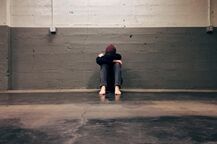自卑的人容易患抑郁症吗?
|
Low self-esteem makes us feel bad about ourselves. But did you know that over time it also can cause the development of serious mental conditions such as depression? Self-esteem is, very simply, the set of feelings you have about yourself. It's developed by your experiences, thoughts, feelings, and relationships. Unlike self-knowledge, which refers to how much you know about yourself, the core of self-esteem is formed around whether you like yourself or not.
Depression is much more than just feeling sad. It saps your energy, makes everyday activities difficult and interferes with your eating and sleeping patterns. Psychotherapy and/or medication are highly effective in treating depression. There are several types of depressive disorders, including major depression, persistent depressive disorder, psychotic depression, postpartum depression, and seasonal affective disorder (SAD). Clinicians use low self-esteem as one possible symptom when they diagnose the psychiatric condition of major depressive disorder. They don't necessarily care whether low self-esteem causes the depression or vice versa. However, personality researchers have long wondered about the chicken-and-egg problem of self-esteem and depression. Certainly, if you dislike yourself, you'll be more likely to be depressed. Conversely, if you're depressed, you'll be more likely to feel bad about who you are as a person. The only way to disentangle the highly related concepts of self-esteem and depression is through longitudinal research, in which people are followed up over time. A study on depression, conducted by University of Basel researchers Julia Sowislo and Ulrich Orth, contrasted the competing directions of self-esteem to depression vs depression to self-esteem. The findings almost all overwhelmingly support the vulnerability model of self-esteem and depression. Over time, low self-esteem is a risk factor for depression, regardless of who is tested and how. The study indicated that low self-esteem causes depression but not vice versa. Therefore, if a person has low self-esteem, there's an increased risk of developing depression. This is a very important discovery because it shows that improving a person's self-esteem can make him or her feel better. The study concluded that there is convincing evidence to support the vulnerability effect of low self-esteem on depression. According to Dr Lars Madsen, Australian clinical psychologist and self-esteem specialist, the reality often is that self-esteem is a key factor in both the development and maintenance of depression. A person with low self-esteem takes things personally, and in a negative way. People with low self-esteem try not to disprove but to verify their negative self-concept by seeking negative feedback from the people in their network. They think about their inadequacies, focus on the negative feedback they receive from others, ponder that feedback, and as a result become more depressed. Their negative mood also leads them to be perceived more negatively by others, which leads them to feel hurt and rejected. Madsen also confirms the rarity of studies on self-esteem and depression that allow for any causal arguments to be made. However, the comprehensive study noted above concluded that the best way to protect your positive mood is to find ways to boost your self-esteem. There are two reasonably straightforward approaches: Don't try too hard to boost your self-esteem. Focusing on why you feel bad about yourself may actually make you feel worse, as pointed out by Oliver Burkeman, in his book The Antidote. Take the long view. You may have messed up at the moment or be going through a slump. You don’t have to feel this way forever. |









